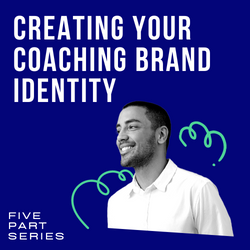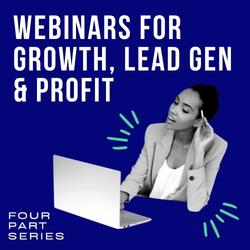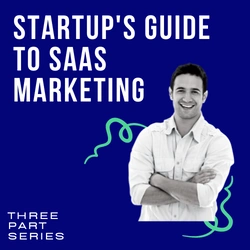How much should you spend on Facebook ads in 2021?
Undoubtedly, one of the best ways to spend some of your ad money once you have developed your marketing strategy and branding is on Facebook advertisements.
Most likely, nearly everyone you know is on Facebook. The social media powerhouse has 2.74 billion active monthly users as of September 2020. Facebook accounts for 9% of the digital ad space and nearly 19% of all global digital mobile advertising, which makes them almost necessary when it comes to advertising your business.
Businesses and advertising agencies around the world have found Facebook to be an extremely valuable tool in reaching their customer base and generating clicks. A surprising number of businesses have even seen a drastic increase in revenue from a Facebook marketing campaign even though most, 45%, are not using a location-specific advertisement target.
Less than half of advertisers use Interest Targeting.
With all these statistics, it’s easy to see that Facebook is a necessary evil to market your brand online. ServerWise clients frequently ask how much they should spend and how long of a period on Facebook ads.
I’m going to help sort that out for you because it doesn’t mean you have to slap down $10,000.
Breaking down Facebook advertising costs.
Facebook is open about the fact that you can start advertising with them on any budget. Of course that doesn’t give YOU an idea of what the out-of-pocket cost will be to get your ad onto a reasonable number of people’s screens.
What Facebook does is charge you for every 1,000 people that your ad reaches. This is called Cost Per Mille or CPM. On paper, that means you could set a $10 advertising budget with Facebook and reach 1,000 people. Now that wouldn’t suit Facebook very well. Instead, the CPM will vary depending on the type of advertisement. After all the goal for Facebook is keeping people on the platform and bad ads only annoy and frustrate users.
To that end, Facebook has some standards that will affect your CPM.
Relevance
Facebook will treat you better and offer you lower CPM if your ad is well-designed and engaging. If your ad looks like something from an early MySpace page, then you can expect a much higher CPM, which will drastically lower how many people you can reach with your existing budget. You need an ad that people will want to click on.
Audience Size
As mentioned above, most businesses do not target a specific region and instead do nationwide advertisements with Facebook. They make that choice because the CPM is lower. Facebook charges less for general targeting. A business that only serves people in Boise, Idaho, and therefore only needs to advertise in Boise will have a higher CPM than their competitor that advertises nationwide. In general, the smaller your audience, the smaller their engagement on Facebook will be, and they make you pay for that, literally. But targeting is important, so pay the extra amount and target your audience.
Competition
It isn’t paranoia if someone is out to get you, and your competition is always out to get you. The stiffer the competition in your sector, the more likely that Facebook will charge you a higher CPM. It’s supply and demand in action. They have more ads to fill the same space, so you’re going to pay more. To counter this, you’ll need to be creative in the design of your ads, messaging, and branding to ensure that you keep your boot firmly on the neck of your competitors rather than vice-versa.
Test your campaign for a minimum of 2 weeks.
The more money you spend on Facebook gives you a wider reach and that increases your chances of higher revenue. When advertising on such a prominent platform always test your campaign first - tweak a bit and test again before committing your full Facebook budget. Once you know your campaign is a winner you can spend more to maximize returns.
Other influences on your advertising costs.
The online ad space is ruthless as it is all data-driven. No matter how much you believe in your company, Facebook only cares about the data their algorithms show and the money you’re spending on their platform. To properly determine what you’ll be spending you need to know exactly what it is you’re advertising and just how well people know it/you?
If you read my article, Marketing on a Ramen Noodle Budget, you know that people only buy from those they know and trust. And if the number of people that know and trust your business is small, then you’re going to have a higher CPM rate than your well-known competitor.
If you’re a small business or a startup you’re going to miss out on Facebook’s most beneficial feature for ad to sales conversions which is something called retargeting. Essentially Facebook will focus ads on those that have recently been to your website or already engaged with your brand.
Retargeting campaigns are critical to a digital marketing campaign’s success.
If you’re not seeing around 10,000 people being retargeted, you need to spend as much as you can to build that number up. Statistically speaking, this is the primary way people generate sales with Facebook advertisements.
If you’re just starting out, you need to brace yourself because you should be prepared to drop about $3,000 just to generate enough awareness in your business. How aggressive your campaign is will be up to you but whether it is spread out over a few weeks or months you should not go too cheap.
I know that $3,000 will buy a lot of Ramen so to be clear, you should use Facebook ads even if you can’t spend $3k. While your results will not be as good you’ll start building a small following.
Remember, Facebook is important, but it’s not the only source to target. We always suggest a multi-platform campaign.
Video content is preferred!
A lot of people will watch a video ad that says the same thing as the picture ad they just ignored. We like interactive media and so does Facebook, which is why they’ll favor you and lower your CPM if you can create good video ads. If you can’t produce video ads you need to use high-quality imagery.
Your product cost determines your reach.
Typically, the more expensive your product is, the smaller the market you have to connect with. A $600 product will always appeal to fewer people than a $19.99 product.
As a result, Facebook will increase your ad costs because the potential for many people to be interested in it is smaller. You will still see results if your ad is done well, but lower your expectations in the beginning. Expect to only break even on your ad spend at first.
The ideal adspend budget.
I apologize in advance for making you do math, but take your sales price and multiply it by the number of new sales you’d like. Be reasonable here. That’s your adspend budget.
The bottom line – how much and for how long?
To get a real idea if Facebook ads will work for your business, you should budget a minimum of $5,000. If you can budget a few thousand more, that would be even better (no, we don’t work for Facebook). You must build your brand, make people aware of it, help them remember it, and retarget them.
All of this takes time and for any business, it’s going to take a good chunk of your ad budget. You won’t be spending all this money at once because a $5,000 campaign over one week isn’t effective. You should be spending that over the course of about 6 months with some months costing more than others depending on holidays or sales you’re running.
Give It A Good 6 Months
A campaign needs to run six months on average to determine if it’s working for you. Over those first few months, you’ll be gathering useful data about your customers and how successful your ad is in reaching them. This gives you enough time to make changes if you notice that things are not going as well as you’d hoped.
Keep in mind that the more successful your campaign is initially, the lower your costs should be for the next campaign.
Yeah, that was a lot of data and uses of the name Facebook, but we hope that with this information you’ll be able to invest in a campaign that will yield positive results for your business.



It’s the sales page where the magic happens. This is the page that gives you a return on your marketing investment. It is on this page where we convert visitors to paying customers. Do you know the valuable elements of a high-converting sales page? You will soon. Keep Learning >

Content marketing is the backbone of the biggest success stories over the last decade. I’m referring to companies like Zomato, Canva, ThinkGeek, HootSuite and even Blendtec. It’s not surprising that so many brands are focusing on content marketing, given the average ROI is twice any other type of digital marketing. Keep Learning >



